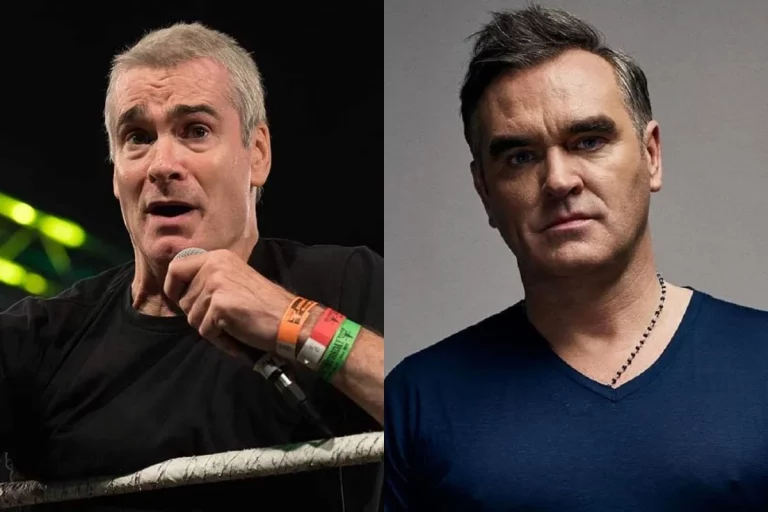Morrissey and Henry Rollins, two iconic musicians, stand at opposite ends of the sonic spectrum.
Rollins, the fiery frontman of the pioneering hardcore punk band Black Flag, charged onto the stage with raw intensity, while Morrissey, the enigmatic leader of indie legends The Smiths, captivated audiences with his melancholic crooning and poetic lyrics.
Despite their distinct musical styles, they share a peculiar commonality – a propensity for stirring up controversy with their outspoken opinions.
In the aftermath of Robin Williams’ tragic suicide in 2014, Rollins sparked shock and debate when he candidly expressed in an LA Weekly column that he no longer felt sympathy for individuals who take their own lives.
He controversially suggested that such actions were deliberate choices to abandon life, rather than lives cut short. This unfiltered perspective fueled debates on mental health and suicide awareness, showcasing Rollins’ unapologetic nature.
In the world of controversy, Morrissey too has earned his place in the spotlight. Known for his candid and sometimes offensive remarks, he has found himself embroiled in a seemingly endless list of provocative statements.
From calling the Chinese people a “sub-species” to equating meat consumption with child abuse, his comments have often ignited public outrage and scrutiny.
Moreover, his openness about almost voting for UKIP and expressing admiration for Nigel Farage added to the polarizing persona he has cultivated over the years.
Both musicians have also taken shots at each other’s nationalities. Rollins, unafraid to unleash his sharp tongue, made biting remarks about Morrissey being British, implying a lack of work ethic.
In retaliation, Morrissey hasn’t shied away from critiquing Rollins.
Ironically, in a moment of apparent détente, Rollins once introduced Morrissey’s music video for “November Spawned A Monster” on an Australian music program.
While seemingly dissonant with his previous criticism, Rollins humorously fantasized about directing a morbid twist to the video’s ending – envisioning Morrissey engulfed in flames, with his hair and shirt burning, the sizzling sound captured by a microphone.
This dark humor added another layer of complexity to the dynamic between the two musicians.
In an interesting twist, Rollins also displayed his shrewd business sense, suggesting remixing Morrissey’s video with a lively house beat and marketing it to the very English youth he seemingly held in contempt. This playful idea underscored Rollins’ ability to find humor even amidst animosity.
Despite teasing the possibility of an apology, Rollins ultimately affirmed his indifference to the consequences of his words, implying that he would not back down from his convictions.
However, in a somewhat surprising turn, he tempered his hostility towards Morrissey, stating that he wouldn’t resort to physical harm but rather opt for humiliation.
In conclusion, Morrissey and Henry Rollins, though different in their musical expressions, share an undeniable propensity for controversy.
Rollins’ candid column on suicide and Morrissey’s provocative statements have left an indelible mark on their personas.
Their jabs at each other’s nationalities, coupled with humorous and imaginative musings, continue to intrigue and entertain fans and critics alike.
While their relationship remains marred by discord, their unique personalities, and unfiltered expressions ensure they remain captivating figures in the music world.

